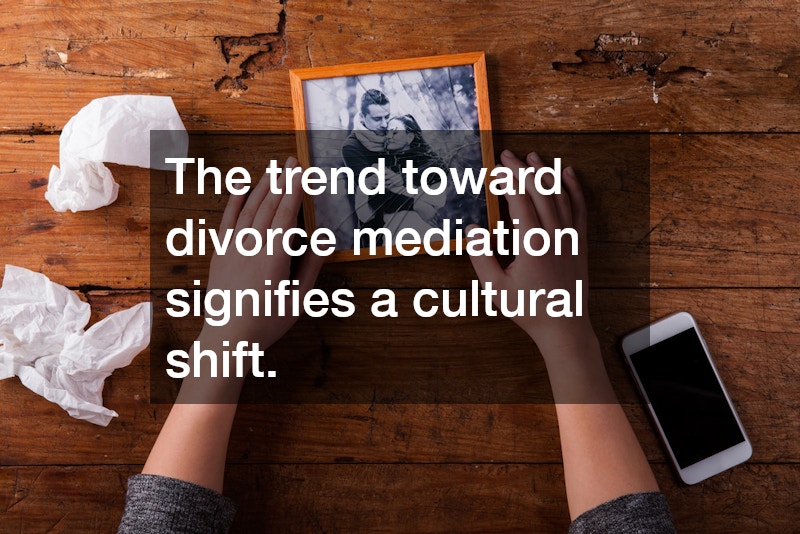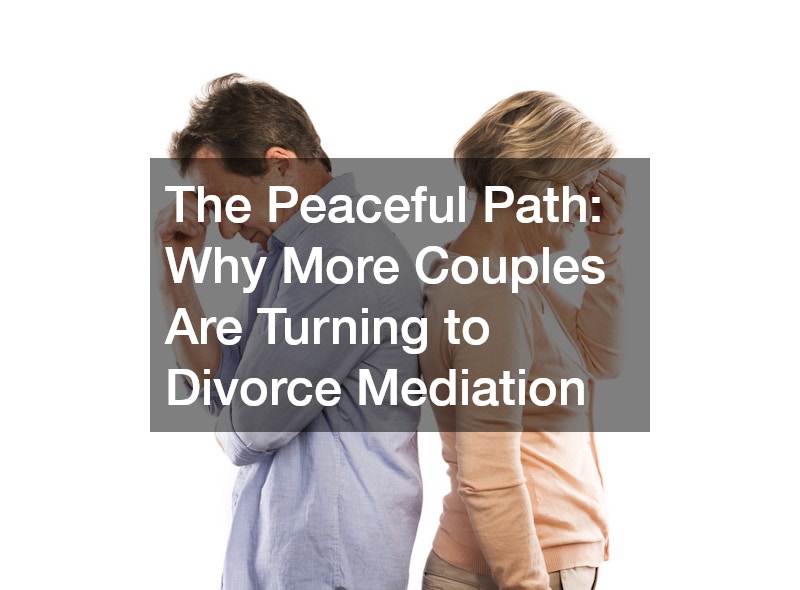Divorce is never an easy decision, but when couples choose to part ways, the method by which they navigate this pivotal life transition can significantly impact the process’s outcome. Traditionally, divorce has been associated with drawn-out, contentious court battles. However, in recent years, more couples have been choosing divorce mediation—a less adversarial and more cooperative approach that strives to meet the needs of all involved parties.
In this article, we will explore why divorce mediation is gaining popularity among separating couples. We’ll delve into the benefits it offers over traditional divorce proceedings.
Additionally, we’ll discuss how this process promotes a more peaceful dissolution of marriage, focusing on collaboration and problem-solving.
Understanding the growing trend of divorce mediation can provide valuable insights for couples contemplating divorce. It offers an alternative method that prioritizes harmony and compromise. By examining the effectiveness of mediation, couples can make informed decisions that benefit their families in the long run.
Benefits of Divorce Mediation
Divorce mediation prioritizes open communication and conflict resolution by allowing couples to discuss their issues openly with the guidance of a neutral mediator. The mediator helps facilitate a productive dialogue, ensuring both partners have an equal say in the decisions affecting their lives. This method can reduce the emotional strain typically associated with divorce, providing a more empathetic and supportive environment.
Cost is another significant benefit of choosing divorce mediation over litigation. Traditional divorce proceedings can be expensive, with legal fees quickly accumulating. Mediation often requires fewer sessions and, therefore, costs less, making it a more financially accessible option for many families.
Lastly, mediation tends to result in a more satisfactory outcome for both parties involved, as decisions are mutually agreed upon rather than imposed by a judge. The collaborative approach means both partners work together to find solutions that suit their individual and shared goals. This often leads to more sustainable agreements, particularly concerning child custody and co-parenting arrangements.
Impact on Family Dynamics
Divorce can be a deeply emotional experience, impacting everyone involved, including children. Divorce mediation can help mitigate the emotional toll by fostering a cooperative atmosphere where emotional needs are acknowledged and addressed. Mediation encourages couples to focus on the future and how they can maintain positive relations post-divorce, benefiting the entire family.
Research has shown that children fare better when their parents have an amicable separation. Mediation allows parents to collaborate on decisions that prioritize the well-being of their kids, rather than exposing them to the hostility often seen in court battles. Through peaceful negotiation, parents can model healthy conflict resolution for their children, influencing their future relationships.
Furthermore, the mediation process helps maintain family bonds by reducing hostility and promoting understanding. When family members, including extended family, see a couple handling their separation amicably, it reduces tension and helps maintain supportive networks. This positive environment facilitates healing and adaptation, leading to healthier dynamics long-term.
Flexibility of Divorce Mediation
One of the leading reasons couples are turning to divorce mediation is its inherent flexibility. Unlike court proceedings, mediation sessions can be scheduled at times and locations that are convenient for both parties. This flexibility reduces stress and allows couples to work through their differences at their own pace without the pressures of a courtroom timetable.
Mediation also allows for creative solutions tailored to the couple’s unique circumstances. Because the couple is in control, they can develop agreements that reflect their specific needs and preferences, rather than being restricted by rigid legal standards. This individuality ensures that the outcomes are practical and applicable to real-life situations.
Moreover, mediation is a confidential process, unlike court cases where records are typically public. This privacy allows couples to discuss sensitive issues more freely without concern for public exposure. The confidential nature of mediation supports honesty and candor, essential components in reaching a fair and lasting agreement.
Divorce mediation offers a viable, positive alternative to traditional divorce litigation. With its focus on communication, collaboration, and customization, mediation empowers couples to make decisions that best suit their family’s unique needs. The result is often a more peaceful, efficient, and emotionally supportive process that benefits not just the couple, but their children and extended family as well.
As more couples discover the advantages of divorce mediation, this approach is likely to become even more widespread. By providing a platform for amicable discussion and problem-solving, mediation allows couples to transition into their new lives with dignity and respect. This shift reflects a growing recognition that the end of a marriage does not have to mean the beginning of a battle.
Ultimately, the trend toward divorce mediation signifies a cultural shift towards more thoughtful and constructive solutions to family challenges. By choosing mediation, couples can pave the way for healthier relationships post-divorce, setting a strong foundation for future interactions and family dynamics.




